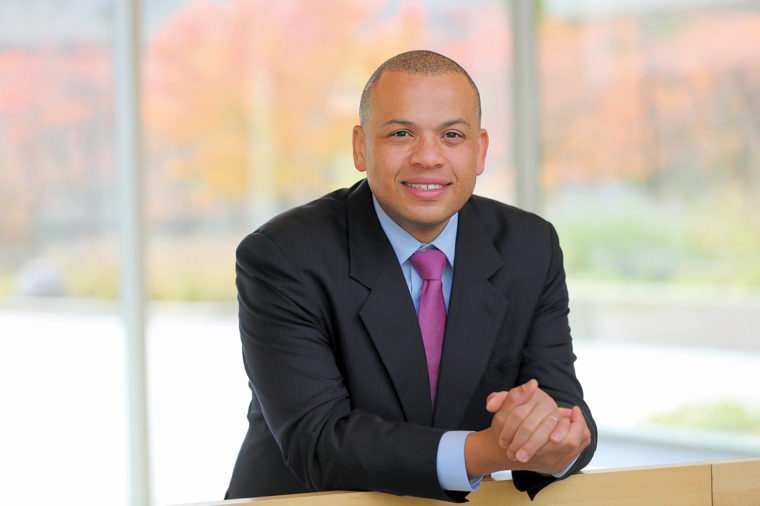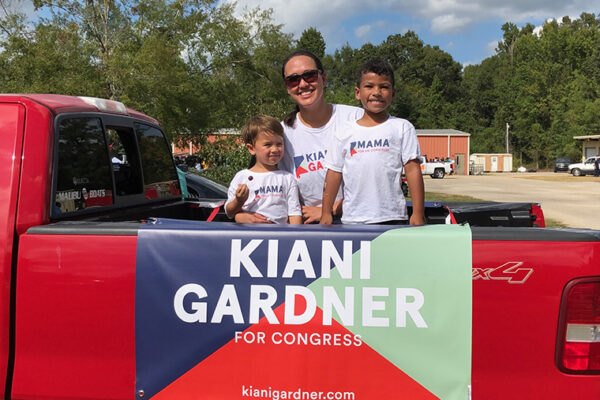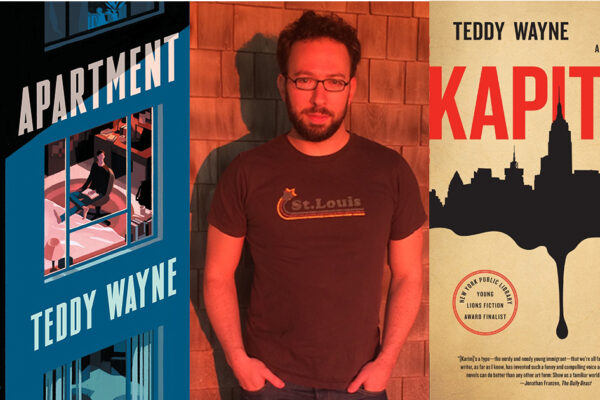As treasurer of the third-largest city in the U.S., Kurt Summers, BSBA ’00, has a $7 billion investment portfolio under his charge, and he represents nearly 3 million people. He says he is driven to bring change to Chicago, specifically to traditionally underserved neighborhoods in the city.
“You have to always remember your ‘why,’ and you have to stay true to that,” Summers says. “My ‘why’ might be that 7-year-old kid on the South Side of Chicago who wants to know why his neighborhood looks different from other neighborhoods — or why his folks have to deal with poverty and violence and economic inequality — and I want to answer the ‘why’ for that kid.”
Summers, who was appointed in 2014 by Mayor Rahm Emanuel and won his first full term the following year, has entirely revamped the way his office is viewed. And he has more than doubled the revenue the city has created out of the treasurer’s office in the past.
In 2017, he launched the Chicago Community Catalyst Fund — a community-focused investment effort that will expand access to capital in Chicago’s low- and moderate-income neighborhoods with $100 million in seed funding from the city, leveraged for an additional $200-$300 million in private-sector dollars.
A little over six months later, Summers announced his plans to put all of Chicago’s investments through an environmental, social and governance screening process to ensure that the investments are sustainable and ethical; Chicago is the largest city in the country to take this step.
Plus, under Summers’ leadership, Chicago hopes to become the largest city to both be a signatory of the United Nations Principles for Responsible Investment and have a carbon-neutral portfolio by 2020.
“I think we’ve changed this office from being a sleepy little investment office on the first floor of City Hall to saying, ‘Look, we have a large pool of capital that traditionally hasn’t been leveraged in ways to help drive investment in neighborhoods, to help drive public policy, to help drive and leverage outside interest in areas that have struggled from disinvestment for decades,’” Summers says. “We’re now doing that with this platform — with this portfolio — and we’re asking questions about where our investments go.”
While at WashU, Summers, a finance and international business double-major, never imagined he’d end up in politics. But Patrick Moreton, senior associate dean for graduate programs in Olin Business School, who taught Summers in a competitive-strategy course, is not surprised by Summers’ career.
“Kurt had that kind of outgoing personality, and he was a really, really good relationship-builder — he had a natural grace at it,” says Moreton, whose class had a big impact on Summers. “He did a good job of connecting to the business world as well as to community service and keeping both on the same plane, so that they weren’t opposites or somehow unrelated.”
After graduating, Summers continued bringing business and community service together. He worked for a global management consulting firm before receiving the Dunn Fellowship to work as an aide to the Illinois governor’s chief of staff. He went on to earn his MBA from Harvard Business School in 2005 and later served as chief of staff to the Cook County board president and trustee of the $9 billion Cook County pension fund. In 2009, Summers also served as chief of staff for Chicago 2016, the city’s bid for the 2016 Summer Olympic Games. Before becoming city treasurer, he was senior vice president at Grosvenor Capital Management, where he oversaw the investment of more than $2 billion in minority- and women-owned firms.
When Summers looks back over his career, he credits WashU “tremendously” for cultivating his love of finance and his desire to be engaged in the broader society.
“On a campus like WashU’s, you interact with all kinds of people. You learn different perspectives, and you learn that the world’s very big,” Summers says. “That’s a great lifelong lesson that I am thankful for learning at WashU.”



